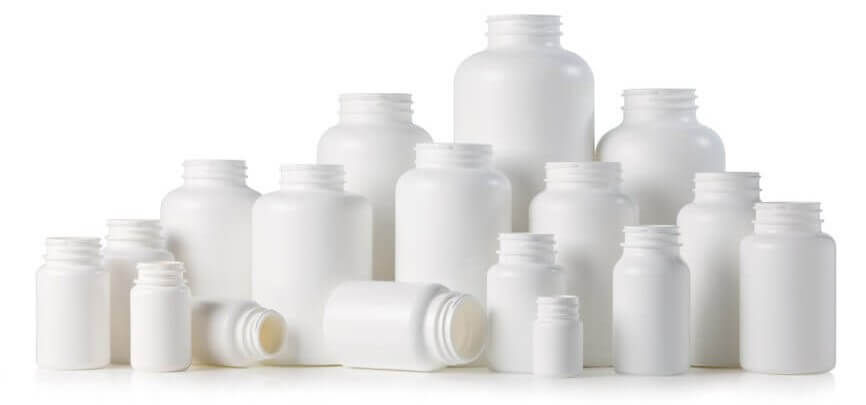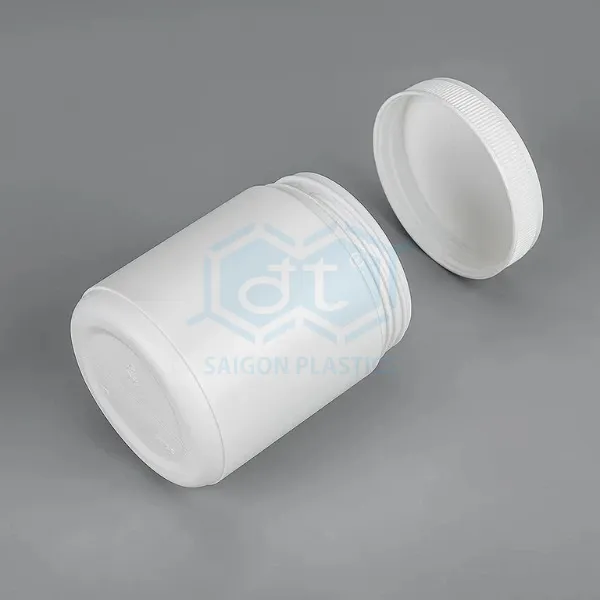In the healthcare and pharmaceutical sectors, packaging must meet the highest standards of durability, hygiene, and chemical resistance. HDPE medical packaging bottles are widely used for disinfectants, antiseptic solutions, syrups, reagents, and medical chemicals due to their exceptional performance and safety profile. As a trusted choice for hospitals, laboratories, and pharmaceutical manufacturers, HDPE bottles help protect product integrity from production to end-user application.
Why HDPE Is Ideal for Medical Packaging
HDPE (High-Density Polyethylene) is one of the most preferred materials in the medical industry because it is lightweight, impact-resistant, non-toxic, and highly compatible with alcohol-based and chemical formulations. Unlike brittle plastics or heavy glass packaging, HDPE delivers the ideal balance of strength, purity, and cost-efficiency.
Its non-reactive molecular structure prevents chemical absorption, leaching, or odor transfer — which is critical in maintaining the effectiveness of medical liquids.
Key Features and Benefits
HDPE medical bottles offer a range of important benefits, including:
- Chemical Resistance: Stable when exposed to ethanol, hydrogen peroxide, iodine, disinfectants, and cleaning agents
- Leak-Proof Design: Secure closures prevent spills during transport, storage, or daily use
- Durability and Impact Strength: Highly resistant to breakage, making it safer than glass in medical zones
- Lightweight and Easy to Handle: Suitable for healthcare workers who require mobility and convenience
- UV and Moisture Protection: Helps maintain product quality over time
- Wide Size Range: From 20ml dropper bottles to 1L–5L bulk containers
These properties make HDPE packaging suitable for both clinical and commercial environments.

Refer to : Plastic cans for chemicals
Applications in Healthcare and Pharmaceuticals
HDPE medical packaging bottles are commonly used for:
- Disinfectant and antiseptic alcohol
- Hand sanitizer and surface sterilizing liquids
- Pharmaceutical syrups and solutions
- Chemical reagents and laboratory materials
- First-aid and wound-care fluids
Whether in hospitals, pharmacies, or laboratory settings, HDPE bottles support strict hygiene and safety routines.
Closure and Dispensing Systems
To meet various medical needs, HDPE bottles can be paired with different closure options, including:
- Mist sprayers for sanitizer and disinfectant liquids
- Flip-top caps for quick clinical use
- Screw caps for bulk storage and refilling
- Tamper-evident seals for secure distribution
- Child-resistant closures for regulated pharmaceutical products
These systems ensure controlled dosing, minimize contamination, and enhance workflow efficiency.

Learn more: HDPE medical plastic bottles
Safety and Compliance Standards
A professional supplier or manufacturer must follow strict medical packaging standards, such as:
- ISO 9001 / ISO 15378 Quality Management Systems
- GMP-certified production processes
- FDA-compliant materials
- SGS chemical compatibility testing
- Batch traceability and hygiene controls
These certifications guarantee consistent quality and regulatory compliance for domestic and export markets.
Sustainability and Eco Options
Modern healthcare brands are adopting greener packaging solutions. HDPE is 100% recyclable, and many factories now offer:
- PCR-HDPE (Post-Consumer Recycled HDPE)
- Lightweight bottle designs to reduce plastic usage
- Eco-friendly labeling and inks
- Low-energy molding technology
This allows organizations to reduce environmental impact while maintaining strict medical safety standards.
HDPE medical packaging bottles deliver reliable, hygienic, and chemical-resistant storage for a wide range of medical and pharmaceutical products. With secure closures, certified materials, and strong durability, HDPE bottles help healthcare providers protect patients, streamline operations, and ensure long-term product stability. For hospitals, laboratories, and pharmaceutical producers, HDPE remains the leading choice for professional medical packaging.
